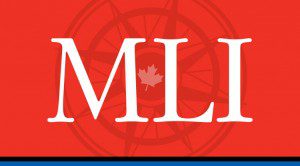 The UN Declaration on Indigenous Rights does not take into account the complexities of constitutional, legal, and political relations between Indigenous peoples and the Government of Canada, write Dwight Newman and Ken Coates.
The UN Declaration on Indigenous Rights does not take into account the complexities of constitutional, legal, and political relations between Indigenous peoples and the Government of Canada, write Dwight Newman and Ken Coates.
By Dwight Newman and Ken Coates, Jan. 4, 2017
With a surprise reversal by the Liberal government, NDP MP Romeo Saganash’s Bill C-262 could have wider-ranging effects than any private member’s bill ever introduced.
Over several brief sections, Mr. Saganash’s bill seeks to move forward Canada’s implementation of the United Nations Declaration on Indigenous Rights (UNDRIP) in a way that shifts a lot more power to courts. The government announced that it will support the bill after previously preaching caution on implementing UNDRIP.
UNDRIP is a complex document that has captured the spirit, goals and aspirations of Indigenous peoples around the world. Its 46 articles respond to the systematic marginalization and prejudice endured by Indigenous peoples globally. As such are excellent statements of the kind of political, legal, economic, and social changes required if Indigenous peoples are to enjoy true self-determination and the positive outcomes they deserve. UNDRIP is sweeping in reach. Indeed, in Canada and elsewhere, national governments have approached its implementation cautiously, and it is important they continue to do so thoughtfully.
UNDRIP is a complex document that has captured the spirit, goals and aspirations of Indigenous peoples around the world.
UNDRIP was not drafted as a piece of Canadian law and thus did not take into account the complexities of constitutional, legal, and political relations between Indigenous peoples and the Government of Canada. Mr. Saganash’s proposed act, in comparison, verges on simplistic, and it is laden with circular tensions. It calls for harmonization of UNDRIP and Canadian laws, without defining the underlying concepts, and it indicates that the act should not “diminish or extinguish existing aboriginal or treaty rights … in section 35 of the Constitution Act, 1982.” At the same time, the proposed act both calls for a 20-year implementation plan and simultaneously says that it is not intended to delay the application of UNDRIP in Canada.
The act, as written, perhaps most significantly, tries to prescribe that the courts may start applying UNDRIP in interpreting Canadian law and the Canadian Constitution. Whether a federal statute can even alter constitutional interpretation is a challenging legal question. But if it can, the act has the potential to unleash a legal struggle of titanic proportions, as each and every policy of the federal, provincial, and territorial governments is subjected to an international test that was not designed to match Canadian circumstances.
Important relationships could be thrown into disarray if, for example, the courts decided that modern treaties did not meet the UNDRIP test, even though they had the strong support of Indigenous communities. Resource projects could be delayed as opponents use a new legal avenue to contest the difference between Canada’s standard—the “duty to consult and accommodate”—and UNDRIP’s call for “free, prior and informed consent.” Indigenous people have every right to seek to expand their legal, Aboriginal and treaty rights. This act could well be opening the door wider in this regard than anyone realizes.
Important relationships could be thrown into disarray if, for example, the courts decided that modern treaties did not meet the UNDRIP test.
However, there is also no assurance that Indigenous peoples would be happy with the outcome of these legal processes. Various courts could decide that Canadian laws, practices and policies meet or exceed UNDRIP requirements. The Supreme Court of Canada has never had an Indigenous justice (and still won’t, with the Nov. 29 appointment of Justice Sheilah Martin), and there can be mixed views on how responsive its case law really is to the aspirations of Indigenous communities. UNDRIP does not come with an instruction manual or clear standards, and it is naïve to assume that all decisions would go in favour of Indigenous peoples. This could lead opponents of Indigenous rights to press for a roll-back on government involvement, as patently absurd as that would be in the current circumstances. In other words, adopting UNDRIP could cause uncertainty and impede the slowly developing legal and political partnerships unfolding in Canada. UNDRIP, instead of serving as an aspirational target, could become over the coming decades a ceiling for Indigenous engagement with the country.
There is nothing wrong—and much that is important—about an intense Canadian discussion about UNDRIP and its applicability in Canada. Policy reform is urgently required and full Indigenous involvement in policy-making and priority setting is essential. More resources, applied to Indigenous-defined needs, are necessary. It is much less clear that turning this process into primarily a legal exercise, as Bill C-262 may do, is a good thing for Canada.
Dwight Newman and Ken Coates are Munk Senior Fellows with the Macdonald-Laurier Institute.




